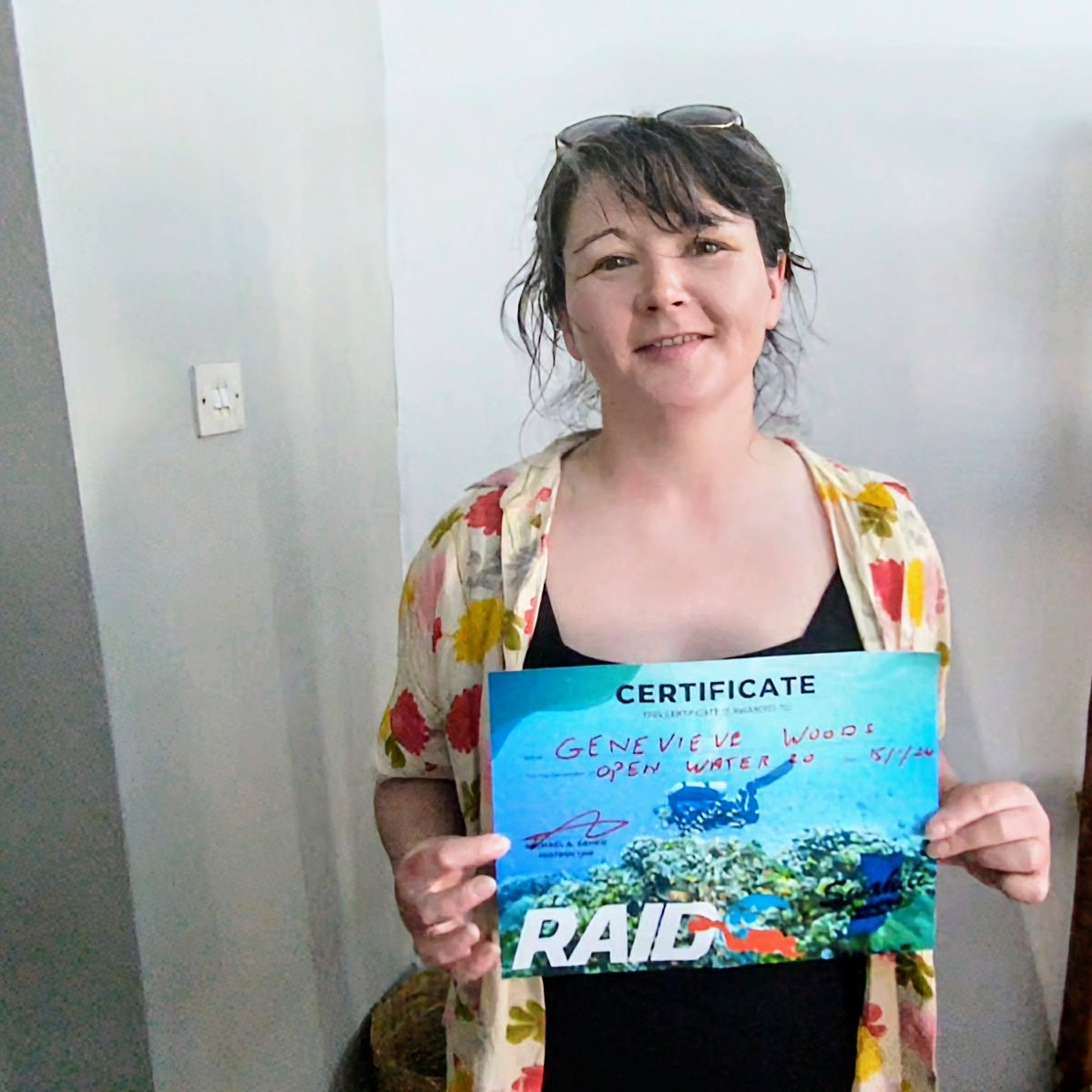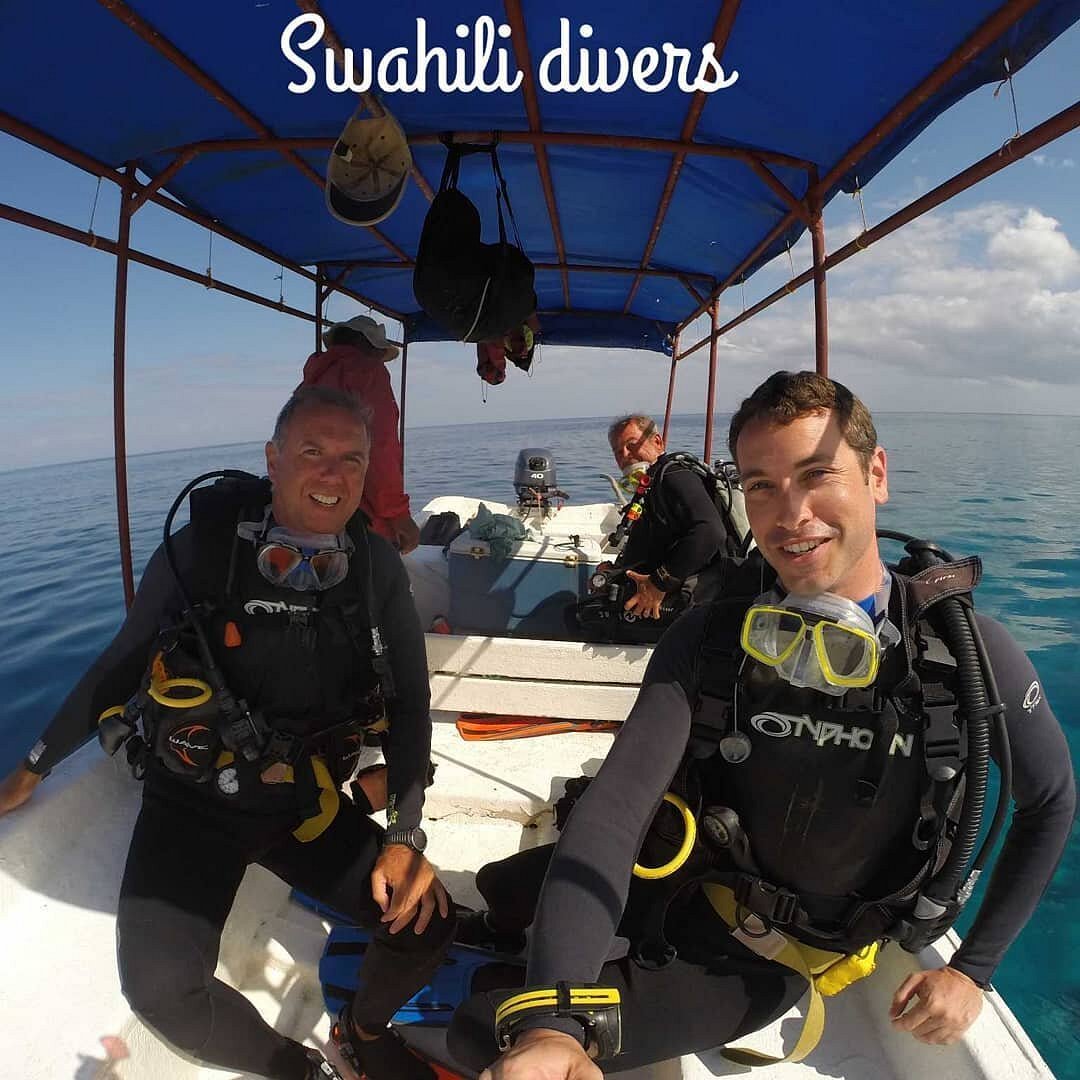How Long Does Scuba Certification Last?
Ever wonder if you'll have to retake that scuba course, especially if you’ve not scuba-dived for a while? The answer might surprise you...
Scuba certifications last a lifetime. Once you've earned your certification, it remains valid indefinitely. Diving certifications do not have a fixed expiration date.
While your initial scuba certification doesn't have a set expiration date, there are crucial factors to consider before strapping on your tank and jumping in — if you’ve been away for over 6 months.
Let's break down everything you need to know to get back in the water confidently and safely…
Content
- How Long Does Scuba Certification Last?
- Getting Scuba Certified
- How Long Does Scuba Certification Take?
- How Long is Scuba Certification Good For?
- Does Scuba Certification Expire?
- Scuba Diving Certification Levels
- How Much Does It Cost to Get Scuba Certified?
- What Is the Best Scuba Certification?
- For How Many Years Can You Scuba Dive?
- Final Thoughts
How Long Does Scuba Certification Last?
Your Open Water Diver certification from agencies like PADI, SSI, NAUI, and others is technically valid for life.
Please understand that there are multiple types of diving with different certifications, but this article focuses on scuba diving (Learn more about what SCUBA stands for).
Here's why that's both amazing and why it comes with responsibilities:
Skills Fade: Scuba diving, like many activities, requires practice. Even if you remember the theory, your muscle memory and comfort level in the water can get rusty.
Safety First: Dive shops and operators need to know you're a competent diver for the well-being of yourself, your buddy, and everyone around you.
Evolving Standards: Equipment, techniques, and our understanding of dive safety improve over time. Staying updated makes you a better diver.
The Essential Path For Returning Divers
So, you haven't dived in a while. You must miss the amazing coral reefs underwater.
Here's your roadmap to a fantastic (and safe) comeback:
Refresher Courses: The #1 Way to Get Back in the Water
PADI's "Scuba Review," NAUI's "Refresher Scuba Diver," “Swahili Diver’s Refresher,” and similar programs offer a structured way to relearn the basics.
Inside a Refresher: Expect a mix of classroom review, shallow water skill practice, and sometimes an open water dive with an instructor.
Why It's Worth It: Even experienced divers benefit! You'll regain confidence, boost your dive knowledge, and feel much better prepared for your next trip.
Staying Sharp Between Dives
Diving is tricky and demanding. But you can’t always be at sea, especially if you’re not a professional diver. So how do you stay sharp between dives every couple of months?
Regular Diving: Aim for several dives a year if possible. This is the best way to maintain your comfort and proficiency.
Pool Practice: Many pools offer scuba programs. Even basic swimming workouts help with fitness and breath control.
Diving Resources: Magazines, websites, and online forums are great ways to stay up-to-date on new gear, locations, and safety tips.
Scuba Gear Check: Don't Ignore Your Equipment
Safe diving depends on reliable scuba gear. Things like regulators and buoyancy compensators (BCDs) need regular servicing by professionals.
DIY Maintenance: You can learn to clean and inspect your mask, fins, snorkel, etc. Your dive shop can teach you or point you to resources. Learn how to do proper gear maintenance from this guide on our top beginner scuba diving tips.
Knowing When to Replace: Even well-cared-for gear wears out eventually. Ask for advice if you're unsure about the condition of your equipment.
Looking to up your dive gear? Here’s our full guide to all the scuba dive equipment you’ll need.
Getting Scuba Certified
Becoming a certified scuba diver involves a series of educational and practical steps, ensuring you're well-prepared for your underwater excursion.
How to Get Scuba Certified?
Getting scuba certified involves several steps:
1. Choose a Certification Agency:
There are several reputable scuba diving certification agencies, such as PADI (Professional Association of Diving Instructors), NAUI (National Association of Underwater Instructors), and SSI (Scuba Schools International).
You can pick one that suits your preferences and location.
If you’re in Africa, you can take your dive certification from East Africa’s leading and oldest dive center, Swahili Divers — with expert instructors, state-of-the-art equipment, and exclusive dive sites.

"I came to Pemba to see the coral. It was beautiful, in good condition, and full of fish and nudibranchs. The diving staff of Swahili divers are all excellent. Equipment was all included and was spot-on. My partner completed her Open Water certification in a few days and we were both totally satisfied."
Evo S.
2. Enroll in a Course:
Once you've selected an agency, sign up for their beginner's course, typically called the Open Water Diver course. This course covers the fundamental knowledge and skills required for safe scuba diving.
Or, you can take a scuba diving course from a certified instructor. This course will teach you the basics of scuba diving, including how to use scuba equipment, how to communicate underwater, and how to deal with emergencies.
If you’re scuba diving in Africa, consider getting your dive training or dive refresher course from East Africa’s oldest and most prestigious center, Swahili Divers Pemba.
3. Classroom and Pool Training:
Your scuba journey begins with classroom instruction, where you'll learn about dive theory, equipment, and safety procedures.
This is followed by confined water training in a pool or controlled environment, where you practice essential skills.
4. Complete Open Water Dives:
After completing your initial training, you'll embark on a series of open-water dives with an instructor. These dives put your newfound knowledge and skills to the test in real-world conditions.
5. Pass the Exam:
To obtain your scuba certification, you'll need to pass a written exam and demonstrate your proficiency in the practical skills.
6. Be at least 10 years old (or 8 years old for some agencies). So the minimum age for scuba diving is 8 years old.
7. Be in good physical condition. You will need to be able to swim and lift heavy objects.
Once you are certified, be sure to dive regularly to maintain your skills. And always dive with a buddy!
If you’re just starting with scuba diving, here are my top 23 scuba diving tips for beginner divers. Learn everything you need to know for great dive experiences.
We’ll discuss the costs of certification later on in this article.
How Long Does Scuba Certification Take?
The duration of your scuba certification course may vary based on factors like the agency, your progress, and the availability of courses in your area.
On average, it takes about 3-4 days to complete the Open Water Diver course, including classroom instruction, pool training, and open water dives.
How Long is Scuba Certification Good For?
As mentioned earlier, your scuba certification is valid indefinitely.
Scuba certifications, issued by organizations like PADI (Professional Association of Diving Instructors) or NAUI (National Association of Underwater Instructors), do not technically expire.
Once you've earned your certification, it's yours for life. However, there are factors to keep in mind to ensure you remain a safe and competent diver:
Regular Diving Activity:
The more you dive, the more comfortable and proficient you become. Make an effort to plan and go on dives at least a few times a year.
This will help you retain muscle memory and confidence in your abilities.
Dive Refresher Courses:
Even if you're an experienced diver, taking occasional refresher courses is a smart idea. PADI offers a course called "Scuba Review" and NAUI provides a "Refresher Scuba Diver" program.
These courses typically involve a review of essential scuba knowledge and skill practice in confined water. Consider taking one of these courses every six months to a year, especially if you've been away from diving for a while.
Speaking of training, here are my top 10 freediving breathing exercises that scuba divers can continuously implement for longer underwater adventures.
Keep Up with Equipment Maintenance:
Regularly inspect and maintain your scuba gear. This includes your mask, snorkel, fins, wetsuit, buoyancy compensator (BCD), regulator, and dive computer. Well-maintained equipment is crucial for safe and enjoyable diving.
Stay Informed:
The world of scuba diving is constantly evolving with new equipment, techniques, safety procedures, and dive locations. For example, Pemba Island in Tanzania is a relatively new diving site with incredible marine life that most people don’t know of.
Come Dive With Us In Zanzibar!
Looking for new and unique dive experiences? Consider a thrilling dive expedition on Pemba Island, Zanzibar.
Stay informed by reading diving magazines, following industry news, and joining online forums or diving communities. This will keep you up-to-date with the latest advancements in the field.
Speaking of advancements, here are the top-ranked scuba diving destinations in the world today.
Know Your Limits:
As you gain more experience, it can be tempting to push your limits. While expanding your skills is a good thing, it's crucial to do so gradually and within the bounds of your training.
Always dive within your certification level and experience, and never take unnecessary risks.
Dive with a Buddy:
This is one of the top safety rules for scuba diving anywhere in the world. Diving with a buddy is not just a safety recommendation; it's also a great way to stay engaged in the sport.
Plan dives with friends or join local diving clubs to ensure you have regular opportunities to dive with a buddy.
Continuing Education:
If you're passionate about diving and want to advance your skills, consider taking additional training courses.
Advanced Open Water, Rescue Diver, and specialty courses like deep diving, wreck diving, and underwater photography can expand your knowledge and abilities.
Physical Fitness:
Is scuba diving safe? The answer is yes, but your physical health is essential for safe diving. Regular exercise and a healthy lifestyle can contribute to your well-being in and out of the water.
Consult with a healthcare professional if you have any medical concerns that might affect your diving.
Safety First:
Always prioritize safety in your diving practices. Stay current with first aid and CPR training, and ensure you have a well-stocked first-aid kit on hand during your dives.
Familiarize yourself with local emergency services and facilities at your diving destinations.
Environmental Awareness:
As a responsible diver, stay informed about local environmental regulations and conservation efforts.
Respect marine life and ecosystems, and follow proper dive etiquette to minimize your impact on the underwater environment.
Here are the world’s top locations with the best examples of ecotourism, if you’re interested in travel while keeping our mother earth safe.
Explore new dive locations in Africa with incredible marine life in the world’s richest continent, Africa.
Does Scuba Certification Expire?
While your initial scuba certification doesn't expire, it's important to recognize that the scuba diving industry is continually evolving. New dive equipment, techniques, and safety standards emerge over time.
Therefore, staying informed and up-to-date is crucial for a safe and enjoyable diving experience.
To address this, scuba agencies like PADI and NAUI recommend that certified divers engage in regular diving activities and continue their education through advanced courses.
By doing so, you'll stay current with the latest developments in the field and enhance your skills.
Scuba Diving Certification Levels
Beyond the basic Open Water Diver certification, there are various scuba diving certification levels you can pursue to expand your knowledge and capabilities.
These levels allow you to take on more challenging dives and explore a wider range of underwater environments:
1. Advanced Open Water Diver: This level builds on your Open Water Diver certification and includes additional dives focused on specific interests, such as deep diving, navigation, or underwater photography.
2. Rescue Diver: For those looking to enhance their safety and rescue skills, this course covers emergency response and rescue techniques.
3. Divemaster: This certification is the first step toward becoming a diving professional. It involves leadership training and allows you to assist instructors with courses and guide certified divers.
4. Instructor Levels: If you aspire to teach scuba diving, you can pursue instructor certifications, including Assistant Instructor, Open Water Scuba Instructor, and more.
Each of these levels represents a new opportunity to explore the underwater world and deepen your connection with the ocean.
How Much Does It Cost to Get Scuba Certified?
The cost of getting scuba certified can vary depending on factors such as the certification agency, location, and the specific course you choose.
On average, you can expect to pay between $300 and $500 for the Open Water Diver course, which typically includes materials, equipment rental, and instruction.
Keep in mind that this cost can increase as you progress to higher certification levels.
What Is the Best Scuba Certification?
With several scuba certification agencies out there, it's natural to wonder which one is the best. The truth is, that the "best" certification agency depends on your needs and preferences.
PADI, NAUI, SSI, and SDI are all reputable and recognized worldwide. Choose the one that aligns with your training goals and the local diving opportunities in your area.
For How Many Years Can You Scuba Dive?
Since scuba certifications do not expire, you can technically scuba dive for as long as you are physically able and maintain your skills. However, there are some vital considerations:
Maintaining Skills: It's essential to practice and refresh your skills regularly to ensure you remain a safe and competent diver.
Physical Fitness: As you age, your physical condition may change, so regular check-ups are advisable.
Environmental Changes: Dive conditions may change over time, so staying updated on local dive sites and safety regulations is crucial.
Final thoughts
Scuba certification is a gateway to a lifetime of underwater exploration. Your initial certification doesn't expire, but ongoing education and practice are essential for safe and enjoyable diving experiences.
So, take the plunge, get certified, and embark on a remarkable journey beneath the waves.

"I came to Pemba to see the coral. It was beautiful, in good condition, and full of fish and nudibranchs. The diving staff of Swahili divers are all excellent. Equipment was all included and was spot-on. My partner completed her Open Water certification in a few days and we were both totally satisfied."
Evo S.

"We enjoyed some wonderful dives with Swahili Divers during our holidays in Pemba this July/August. Mike and the team are very professional, and always ready to support and find solutions. The dive sites are very diverse and can be used for junior open water divers up to very experienced ones. That means shallow water to super nice wall dives. Thanks for the wonderful time with you!! "
Regards, Nicole & Patrick and the 3 kids;-)




